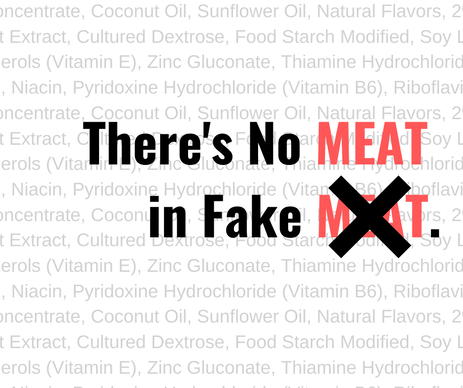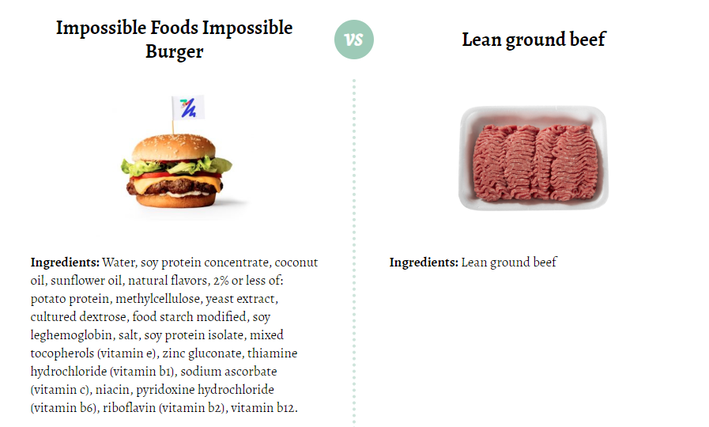|
Legislation to codify the definition of beef and uphold truthful labeling on alternative protein products has now been introduced in both chambers of Congress. On Wednesday, Sen. Deb Fischer of Nebraska introduced the Real MEAT (Marketing Edible Artificials Truthfully) Act as a companion bill to H.R. 4881, which was introduced in the House of Representatives in October.
"Consumers want to know what is in their food, and rightfully so," said Paul Defoor, TCFA chairman. "There are a number of fake products on the market that claim to be meat, when in fact, they are the furthest thing from real meat. "Americans love beef, so it's not surprising that fake products would try to ride the coattails of beef's popularity, but consumers deserve more than deceptive labels. They should be confident that, when they buy a product labeled meat, it's actually meat. Furthermore, food labels should be honest and accurate, and these bills will ensure that consumers have the right information to make their own decisions." The bills would establish a federal definition of beef that applies to food labels. They also preserve the congressional intent of the Beef Promotion and Research Act that was signed into law as part of the 1985 Farm Bill. Section (3) of that bill clearly defined the terms "beef" and "beef products," and although these terms were codified in 1985, they don't apply for labeling purposes. The Real MEAT Act would fix that. Second, the bills affirm the misbranding provisions that are already on the books. These provisions were put in place over 50 years ago to prevent consumer confusion, and that intent has not changed. Third, the bills strengthen enforcement of mislabeling laws. Currently FDA, the agency that oversees plant-based proteins, does not enforce mislabeling until a product has already come to market. This is, in-part, because FDA does not require the approval of labels on foods under their jurisdiction before they hit the shelves. The Real MEAT Act would change that by requiring FDA to notify USDA, in writing, when they determine a product is mislabeled. If FDA does not take enforcement action within 30 days, the Secretary of Agriculture can step in and take action. “Beef is derived from cattle — period," Senator Fischer said. "Under USDA, beef undergoes a rigorous inspection and labeling process, but plant-based protein products that mimic beef and are sometimes labeled as beef are overseen by the FDA instead. These products are not held to the same food safety and labeling standards as beef. The NCBA has been a leader on this issue, and I am thankful for their strong support of the Real MEAT Act, which will protect consumers from deceptive marketing practices and bring transparency to the grocery store." Fisher wrote about the motivation behind the bill in Wednesday's Wall Street Journal. Thank you Sen. Fischer. We could not agree more.
0 Comments

A bill was introduced in Congress last week that would codify the definition of beef and uphold truthful labeling on alternative protein products that currently refer to themselves as meat (even though there is ZERO meat in them). TCFA strongly supports this bill, H.R. 4881, and urges Members of Congress to sponsor and support it.
The bill is pretty simple. First, it establishes a federal definition of beef that applies to food labels. It also preserves the congressional intent of the Beef Promotion and Research Act that was signed into law as part of the 1985 Farm Bill. Section (3) of that bill clearly defined the terms "beef" and "beef products," and although these terms were codified in 1985, they don't apply for labeling purposes. The Real MEAT Act would fix that. Second, the bill affirms the misbranding provisions that are already on the books. These provisions were put in place over 50 years ago to prevent consumer confusion, and that intent has not changed. The problem is that many consumers believe plant-based meat is healthier, less processed and overall better for the environment. A quick comparison of the ingredient labels of both products indicates those beliefs couldn't be further from the truth.
Third, the bill strengthens enforcement of mislabeling laws. Currently the Food and Drug Administration (FDA), the agency that oversees plant-based proteins, does not enforce mislabeling until a product has already come to market. This is, in-part, because FDA does not require the approval of labels on foods under their jurisdiction before they hit the shelves. The Real MEAT Act would change that by requiring FDA to notify USDA, in writing, when they determine a product is mislabeled. If FDA does not take enforcement action within 30 days, the Secretary of Agriculture can step in and take action.
The bottom line is this: Consumers want to know what is in their food, and rightfully so. The beef community has worked for decades to establish beef's strong reputation among consumers, so it is not surprising that imitation products would try to ride the coattails of beef's popularity. But consumers deserve more than deceptive labels, and this bill would give them the factual information they need to make their own purchasing decisions. |
Categories
All
Archives
June 2024
|
About TCFA |
Get Involved |
|


